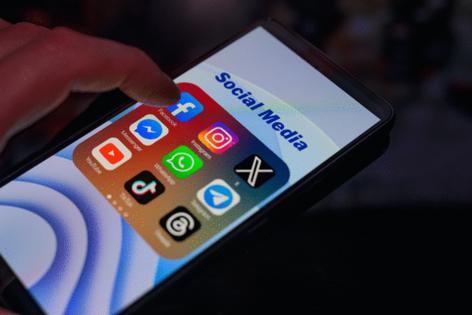Editorial: School cellphone ban -- It's about time
Published in Op Eds
Last Tuesday, the Baltimore City Board of School Commissioners voted unanimously to adopt new, stricter guidelines on cellphones that essentially require students to keep them turned off in the lockers or other storage areas and be allowed to use them only in case of emergency — and even then only with the express permission of a school administrator.
Even teachers and staff will be expected to curb their use of cellphones during the school day. The policy will go into full effect during the next school year.
One obvious question arises from this decision: What took them so long?
Oh, we’ve heard the pros and cons of cellphones in student hands for years. They are, after all, essentially powerful handheld computers and so could theoretically be incorporated in learning. In some schools, the devices are so commonplace that asking an entire class to research a classroom assignment by way of cellphone is not far-fetched. And then there’s the matter of communication and staying in touch with parents and guardians. A change in the pickup schedule? After-school activities altered? How convenient to be a text away.
The reality, unfortunately, is often quite different. Not only are cellphones a major source of distraction in school but they enable all sorts of destructive behavior including bullying. Why are your classmates snickering over at that nearby lunchroom table and perhaps looking up from their phones to eyeball you? Too bad you’re not on their messaging app — or maybe you’ll find out after the ridicule (and perhaps video) has bounced around school all day.
Small wonder that a nationwide survey of teachers last year by the National Education Association found 90% support a cellphone ban during class time and 83% would favor one during the entire school day — which is what the city school system just did along with a growing number of its peers. Teachers and individual schools may already have the authority to restrict cellphone use in classrooms or whole schools but how much better to set a standard system-wide.
Indeed, a growing number of states are adopting this broader approach. Although Maryland isn’t one, Education Week now counts 23 states that either outright impose school cellphone restrictions statewide, recommend them to local districts or perhaps offer incentives for systems to pass tougher limits (nearby Pennsylvania and Delaware falling into that last category).
We can only hope parents and guardians are paying attention. Mental health professionals are increasingly concerned about how widespread use of cellphones can harm a child’s development particularly in the teen years and especially with the use of social media platforms.
Schools ought not be the only place where some reasonable boundaries are drawn. Spending four, five, six or more hours a day on screens just isn’t a good idea and parents worried about being overprotective may have, in the case of their kid’s iPhone, fallen into a distinctly under-protective trap.
_____
©2025 The Baltimore Sun. Visit at baltimoresun.com. Distributed by Tribune Content Agency, LLC.




























































Comments